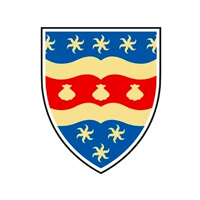fees waived
Ocean Science and Marine Conservation, BSc (Hons)
University of Plymouth, United Kingdom
Subject ranking
UK / USNews 2024 4th
UK / ARWU 2024 16th
UK / ARWU 2024 20th
Costs
food & rentS$17.1K / year
Entry requirements
Scholarships
1 available
Unlimited quantity
Unlimited quantity
Unlimited quantity
Limited quantity
Information
Code
Code
Intakes
Website (External)
Programmes
Information
Duration
2028
This course offers an integrated approach to understanding oceanographic processes, marine ecosystem functions, and sustainable management of marine activities. It explores policy frameworks for protecting oceans, equipping students with skills in ecological surveys, data analysis, and stakeholder engagement. Ranked in the top 15 in the UK and top 100 globally for Earth and Marine Sciences, the program prepares graduates for careers in marine conservation, environmental consultancy, and related industries through practical experiences like fieldwork and optional diving qualifications.The first year introduces core ocean science topics and practical skills via field-based activities. Subsequent years build on this with specialist modules on human impacts, conservation policy, and advanced topics like marine pollution. Students undertake independent research projects and may participate in placements or overseas field courses, fostering expertise in real-world marine issues. Modules are subject to change, with up-to-date details available on the institution's website.
Your first year, shared across the Marine Science Undergraduate Scheme, introduces the full range of topics within the degree and develops your underpinning scientific knowledge and practical skills. You’ll develop your understanding of the Earth’s oceans and the key physical, chemical, and biological processes that occur in these systems. You’ll build practical skills and enhance your ability to analyse, present and interpret scientific data through field-based activities. Your second year introduces specialist marine conservation concepts and continues to build knowledge and understanding of a broad range of topics in ocean science. The core marine conservation modules develop an understanding of the range of impacts human activities have on marine ecosystems. You’ll have the opportunity to develop your interests through a choice of option modules covering areas such as coastal oceanography, scientific diving and more advanced hydrographic survey and mapping methods. Gain relevant industrial or workplace experience with the Ocean Science placement. During your final year you’ll develop your scientific skills with the opportunity to participate in a residential field course. A large part of your final year will be spent on an independent research project with guidance from an academic advisor. Taught modules will complete your advanced understanding of marine ecosystem conservation and marine conservation policy and management. You’ll have the opportunity to develop your specific interests, for example in marine pollution or biological oceanography, through an option module. The modules shown for this course or programme are those being studied by current students, or expected new modules. Modules are subject to change depending on year of entry and up to date information can be found on our website.
A local representative of University of Plymouth in Singapore is available online to assist you with enquiries about this course.

